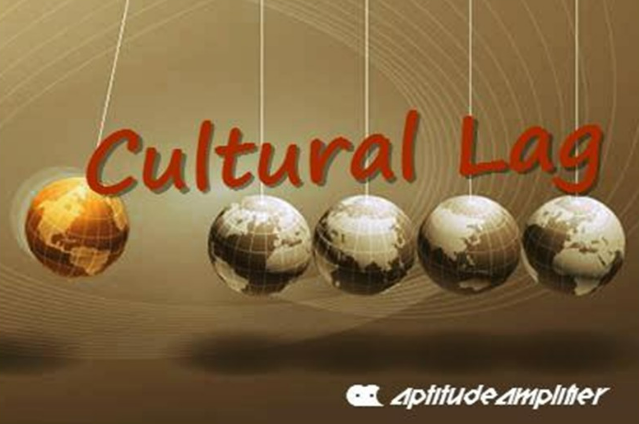Introduction

We all know that, 'it is impossible for a man to step into the same river twice.' Do we perform this unconsciously or there are some real forces working behind the mechanism? Let's get into the paper to satiate our demand.
We all know that change is inevitable in nature. The above hypothesis is impossible as in the interval of time between the first and second stepping - both the river and the man have changed. Why is it so?
It's actually because the reality of change, the impermanence of being, the behaviour of a thing to change itself. The society keeps on changing as there are always some inherent defects which needs to be rectified from time to time.
Generally, people perform actions but they don't realise that their action has meaning only because as it is relevant to the social situation. People generally retreat back when it comes to find the causes for an action as for them the task is based on common sense and cannot be tabulated as it's highly generalized.
The presumption shall always be eclipsed by the idea of 'Happy is he who can know the causes of things.' The curiosity of an individual shall never rest. He should always be engaged in an endeavour to unravel the mystery of social change. The subject matter demands huge attention but we should understand that anything that's established must wither away for the establishment of new ones.
Change is the Law of Nature

The nature is always at work. The idea of change is already internalised in all. Hence, just as an individual can change so can the society too. Although, the change may not be swift. The flux and flow in society is always in a state of continuum. The change in society reflects that change is the law of the nature.
Incessant changeability is the basic nature of human society. Society is influenced by many forms and factors and hence is subject to change. Alteration or modification that takes place in a situation or in an object through time can be called change.
Meaning of Social Change:
It is a term used to describe the changes that take place in human interactions and interrelations. The society is a complex whole of varied social relationships and hence the term 'social change' implies a change in that direction too. The term is used to define the variations in social interaction, social processes and social organisation. Simultaneously, it also includes the alterations in the structure and functions of society. To quote some authors who have defined social change,
M.E. Jones, 'Social change is a term used to describe variations in, or modifications of, any aspect of social processes, social patterns, social interaction or social organisation.'
Kingsley Davis, 'By social change is meant only such alterations as occur in social organisation, that is, structure and functions of society.'
Social Change:
A Complex Phenomenon
The fact of social change has stormed the brains of all. The phenomenon of change is not simple rather it's very complex. The phenomenon cannot be understood in it's entirety. Many questions arise out of this process.
Let's take a look first on the nature and characteristics of social change.
Nature and Characteristics of Social Change:
- It is continuous:- Society undergoes endless changes. These changes cannot be stopped. Society cannot be preserved in museums to save it from the ravages of time. From the beginning of mankind, the society has been in continuous flux.
- It is temporal:- Change happens through time. Social change is in process always. It never delivered in society as the final and ultimate product. Innovation of new things is adding on the material culture but the norms and values conform in the society as long as they continue to work for social welfare.
- It is environmental:- It takes place in a particular geographical or physical context. These contexts impact the human society as man also shares the same geography where the change is also a part of. Social changes never take place in vacuum.
- Social change is human change:- The change initiation also includes the individualistic and functionalistic pattern. Thus, change is brought by the forces created by man and he is also a party to experience them.
- Social changes is a Chain Reaction:- Change in one corner hits the extreme corner in line or out of order. Hence, social change is a voluminous concept.
- Social change is related to Socialisation:- The greater we connect with the society, the greater we increase the probability to bring about a change.
- Social change is directional:- Social change happens in a particular direction. Change is always carried out to learn from the past standards and theorise for future behaviour.
- Social change may be planned or unplanned:- The direction of social change is conditioned by human engineering. Plans and programmes are launched by man to determine the rate and direction of social change.
- Short versus long-run changes:- Some changes may produce immediate results while some bring a change but on a gradual scale.
- Social change is an objective term:- The idea of social change is ethically neutral. It involves no-value judgement.
Causes of Social Change:
It's a complex process hence the cause and effect relationship is difficult to be established here. No single cause is responsible for producing a change. There is always the plurality of causation.
The social change can be inherent or it could take place due to some external factors. Change may also be directed from non-social environment. The components of social system are interelated. Change in one alters the other one too.
a) Strain & Conflict:- Conflict of interests is always present in all the social systems. The concept of power also implies the change. In a larger social system the conflicts of interests are settled largely by institutional norms. A latent or an overt conflict is always present at all times. The change will be visible when the existing order is not the only realistically possible order.
b) Social problem:- Problems that occur in society also indicate for a change. The problems can be due to both the internal and external deficiencies. An attempt should be made to solve the existing social order. Changes in society also affect the value system in society.
c) Revolutions and upheavals:- The most intense and sudden change is seen in the case of a revolution. Revolutions like the Russian Revolution or the French Revolution have taken place to overthrow the status-quo for a desirable change.
d) Cultural change:- Culture is dynamic in nature. It is always associated with social change. An innovation in one corner of the world impacts the global culture. The diffusion of culture takes place from one society to the other.
The Impact of the Social and Non-Social Environment:
The surroundings have their own impact on the social structure.
- The impact of the Non-Social Environment on the social structure is relatively less. Changes occur here largely due to the changes that happen in nature.
- The influence of the Social Environment us more significant in bringing about changes. Changes in the social structure have effects on the other one immediately.
Sources of Social Change:
Social change takes place due to cultural diffusion. It refers to the behaviour modification in a particular culture. It denotes the spread of elements of culture in all dimensions. This supposition elaborates that social inventions do not take place at all times and not always in the same manner. It takes very long for a society to transform once boarded on the train of change. The need for social change is important to stop the stagnation of society. Hence, according to some authors, the source of social change is cultural diffusion.
Some say that social change is to be found in the inherent capacity of people to make inventions. They have said that inventions constitute the major source of social change. Inventions can be in any domain. It refers to the rearrangement of traits into new patterns or configurations. The material and the non-material culture both are strongly impacted. In short, this view upholds that people are capable of initiating changes on their own.
Both these suppositions cannot be accepted or rejected. The source of social change can come from both the ends. Internal invention and external diffusion two originating sources that have cumulative mutual influence on change. An internally inventive society also seeks knowledge. Every social change is strange and foreign whether it originates at home or comes from abroad.
Resistance to Social Change:

Though social change is universal, societies and cultures are relatively permanent figures. The social and cultural functions don't change overnight. Certain resistance to change is seen almost everywhere. Removal of evil practices is also an important constituent of social change. In some societies, slavery was persistent, some had denied voting rights to women. A lot of ill practices are always present in society and it's only the social change that can help in this process. Change is always opposed by man.
Reasons for the Opposition to Social Change:
- Lack of new inventions:- Social changes depends upon the changes that happen in the material culture. Changes will only take place where there is a craving for change inside. Lack of interest and atmosphere for change do not provide a favourable atmosphere for change.
- Rejection or non-acceptance of new inventions:- No change is possible if people continue to reject the inventions. A new invention is always opposed at first but then gradually it acquires place.
- Imperfections of new inventions:- Initially the inventions may be reflecting poor performance but such things repair. Social inventions have imperfections in the beginning. People may oppose them for their inadequacies.
- Fear towards the new:- Man has not only the love for past but also fear towards the new. People express the fear while making use of new objects or when they enter in a new atmosphere. The fear and suspicion to embrace new things resists the process of social change.
- Tradition and reverence for the past:- People are traditional in their attitude. The old practices are held by the people strongly. People are emotionally and sentimentally attached to them. Sometimes people just always want to cling on them. Thus, the traditional attitude of people has always resisted for social change.
- Ignorance:- Ignorance with the happenings around you may take you years to accept a new change. Some people also reject something for lack of concrete demonstration.
- Habit:- Individuals are influenced by habits and customs. People dislike them or fear the unfamiliar. They are not ready to give up a new habit as they are habituated to the existing one.
- Economic disparity and difficulty:- Tough economic conditions also come in the way of social change. People who are suffering from some economic problems will be ready for a change.
- Intellectual laziness and administrative defects:- People generally lack of awareness as they are not much updated with the new ideas. Lack of these qualities cause the individual to realise the importance and usefulness of new changes. Inefficient and corrupt administration have been said to be conservative in nature and a stumbling block on the path of change and progress.
- The power of vested interest:- People who have some vested interests in a particular social system will always be resistant to social change in the fear of their interests getting challenged. The capitalists never wanted for a socialist revolution to take place.
We cannot say that resistances are harmful. In some cases, opposition to social change is justifiable. The transformation of Weimar Republic to the Dictatorship of Hitler in Germany was definitely a negative change. In such a case, social changes should be negated. In short, not all the changes can be welcomed as worthwhile and beneficial.
Role of Values in Social Change:

The most comprehensive cause of social change is the change in values. Values are regarded to be the important facts of social structure. Values constitute one of the elements of culture. Values normally undergo changes. Scientific and technological innovations, political and economic changes, widespread education, high rate of urbanization and industrialisation have caused change in values.
Social norms themselves undergo changes. They affect the rate and direction of social change. The direction of change is also in large measure by these subjective aspects of society. Ideological values resist and limit social changes. They differ in the degree to which they resist change.
Role of Great Men in Social Change:
Great men and their leadership constitute an important source of social change. Great men of genius, revolutionary thoughts, extraordinary talents, powerful expression, ability and efficiency, may sometimes bring about revolutionary and also long-lasting changes in society. Human history provides multiple examples of such men and women who brought about far-reaching changes.
It's difficult to weigh and estimate the influence of single individuals in the process of social change. Personality itself seems to be shaped under various factors. The change may not be visible today but the ripples of that may go on forever eventually bringing about the desired change.
Social Evolution

Evolution literally means gradually 'unfolding'. It indicates changes from within and not from without. It is spontaneous and not automatic. It must take place at it's own accord. It implies the process of constant changes that happen in society. The concept of evolution is precisely related to the internal growth of an organism.
Meaning of Social Evolution:
The term evolution is borrowed from biological science to the science of society. Organic evolution is used to denote the evolution of organism. The expression 'social evolution' is used to explain the evolution of human society. The evolution of man's social relations. A satisfactory explanation is much required in this regard. The society evolved because of man who evolved the society in turn. Men with superior and more evolved biological structure could give rise to a more complex society. It's actually the society that is evolving.
- The evolution is a process of internal growth. What is latent becomes manifest in it, and what is potential is made actual. The concept thus helps us to know more about the unfolding of social structure.
- The evolutionary clue helps us to arrange a multitude of facts in a significant order. It gives us the idea of succession in stages.
- The evolutionary principle provides a simple means of classifying and characterising the most diverse social systems. Societies could be classified on the basis of their degree and mode of differentiation. This also gives us an idea about the direction of change. The direction of change is always the result of some persistent forces that are at work.
Social Evolution Vs Organic Evolution:
- Organic evolution implies the differentiation in the bodily structure. Social evolution enters into various dimensions according to the changed conditions of life.
- The organic evolution affects only the descending generations. In case of social evolution even the old and new generations are affected by it.
- The change is transmitted in form of qualities in organic structure. Social evolution allows the change in the social structure itself.
- The organic evolution is continuous. The social evolution is intermittent in behaviour.
Concept of Progress
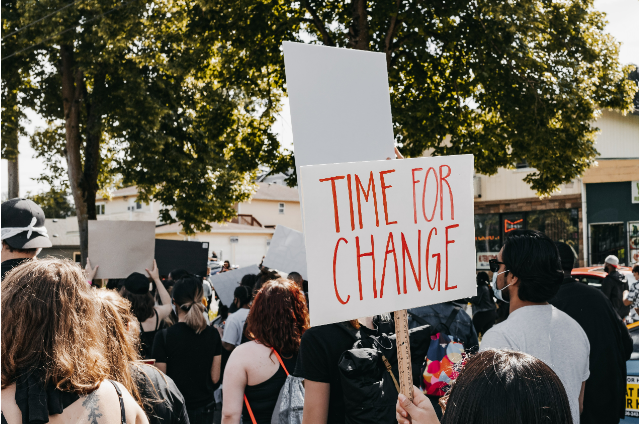
Human society has demonstrated tremendous progress. The extent of progress is yet not defined.
It is a movement towards an objective thought to be desirable by the general group for the visible future. By progress, we imply not merely direction, but direction towards some final goal, some destination determined ideally not simply the objective consideration of work.
Nature of Social Progress:
- There is change in progress:- The idea of social progress presupposes the idea of change. There can be no progress without any change.
- Change is desired towards some goal:- A change call only be called progress when it attempts to fulfill the desired end.
- Progress is communal:- Progress for a particular individual or a society happens in a particular direction.
- Progress is defined in term of values:- Our value system regard the re-generation and degeneration in the society.
- Progress is not a measuring rod:- The idea of progress is much more subjective than objective. What sounds progress to one may appear to be decadence to another.
- Progress has diverse interpretations:- Goals and ideals change from time to time along with them the idea of progress also changes.
Theories of Social Change
Evolutionary Theories:
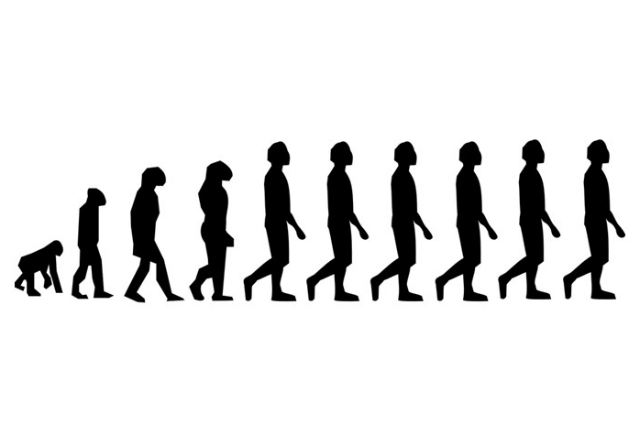
They are based on the assumptions that societies gradually change from simple beginnings into even more complex forms. The evolutionary theory has largely been the product of Charles Darwin's 'Theory of Social Change'. Those who were fascinated with this theory applied it to the human society and argued that human societies must have evolved from the too simple and primitive to that of too complex and advanced such as the western society. Herbert Spencer is a chief exponent of this branch - who related the evolution of man with the concept of 'Survival of the Fittest'. He has given a vivid description as to how societies have evolved from time to time. This view is called 'Social Darwinism'. Durkheim has elaborated that as to how the concept of 'division of labour' has been a sociological concept and not a term that originated in economics. The evolutinary theory has supported the cause of 'white man's burden' theory as per which the Western societies have sought to establish their dominance on the Asian and African societies.
The idea of evolvement is that of a serious one. It explains as to how and why society evolved. Although, some theorie do not extend the complete data. The theory has perpetuated the cause of 'ethnocentrism'. All the societies don't even follow the evolutionary sequence. A multilinear evolution has become a characteristic property of social change in societies these days.
Cyclical Theories:
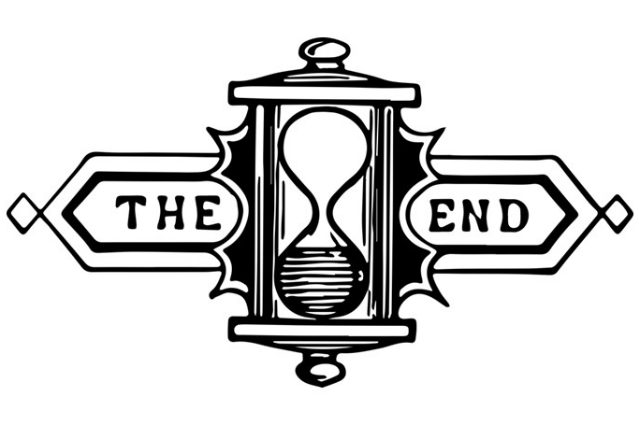
a) Spengler's Destiny of Civilizations:- In his book, Decline of the West - 1918, he pointed out that the fate of the civilizations was a matter of destiny. The study of a biological organism is moreover parallel with the study of a society. According to him, the Western society is the last stage and are now going to enter into a period of decay. This theory is almost out of fashion today. Idea of destiny cannot always direct the process of social change.
b) Toynbee's Challenge and Response:- In his book, Study of History - 1946, he says that social change is the result of process of social change and process. Every society faces challenges at first later the nature of the responses determine the extended behaviour. The achievements of a particular civilization depend upon this factor largely. Toynbee's view are more optimistic than those of Spengler. He does not believe in the inevitability of decline of civilizations.
c) Sorokin's Sensate and Ideational Culture:- In his book, Social and Culture Dynamics - 1938, he has offered another explanation of social change. The Sensate Culture stresses those things which can be perceived directly by the senses. It is practical, sensual and materialistic. Ideational Culture emphasises those things which can be perceived only by the mind. It is abstract, religious, concerned with fate and ultimate truth. Societies contain both of these types of impulses in varying degrees and the tension between them creates long-term instability. His theory has been highly speculative and descriptive.
d) Functional Theories of Change:- In every society, there are some cultural patterns in controlling the stability of society. There are many divisive forces that work to disrupt the stability of society. Such forces need immediate and sufficient rectification. Talcott Parsons states that a change occurs when there is some movement in the equilibrium pattern that had been established in society. The equilbrium theory attempts to explain both sides of social statics and social dynamics.
Conflict Theories:
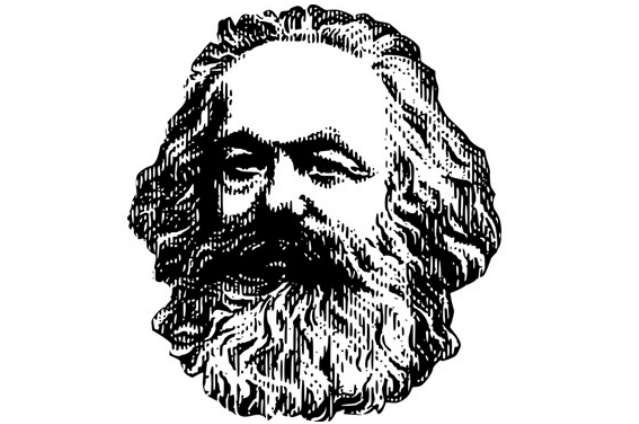
Every society is subjected at every moment to change. Every society experiences at every moment some degree of social conflict. Every element in society contributes to change. Every society rests on constraint of some of its members by others.
Karl Marx: Change through Class Conflict:
A German thinker who said that, 'All history is the history of class conflict'.
In his book Communist Manifesto, he wrote that, 'Violence is the midwife of history'. Individuals and groups are bound to be at conflict. The conflict is going to be between the resource-rich class and resource-deprived class. He also believes that the existing conditions in any society contain the seeds of future social changes.
Like Marx, George Simmel too stressed the importance of conflict in social change. According to him, if every interaction is sociation then conflict is also sociation. He says that conflict is a permanent feature of society. It is a process that binds people together in interaction. The theory is quite impressive but it cannot tells us much about the direction of social change.
Factors of Social Change:
Society is in continuous flux. Both internal and external forces are responsible for bringing about a social change. Various factors are responsible for this magnified process of change.
Geographic or Physical Factors of Social Change:

The physical factors consist of the earth, climate, rainfall, rivers and mountains etc. They have a profound influence on human society. Rate and direction of social change is governed by the physical environment. The surface of Earth is never at rest. Convulsions within the systems are also a feature occuring with time. They may bring about social change. Changes in nature are usually unaffected by the human activity. Here, the causation is one sided. Volcanic eruptions have also affected the human activity. Tsunamis bring about a ravaging impact on the people living in coastal areas. The desert waters and ecological life is also responsible for the change occuring in different regions. The Mesopotamian Civilization thrived because of the Euphrates and the Tigiris river. The centres of population, the routes of trade, the seats of empire and the systems of structures of societies have been vastly affected. Geographic factors are neither divisive nor negligible, they are limiting but not determining. Geography in short governs the possible not the actual.
'Geographic factors account for what can be and for what cannot be in human societies, but they do not account for what is.' - Robert Bierstedt.
Biological Factors of Social Change:
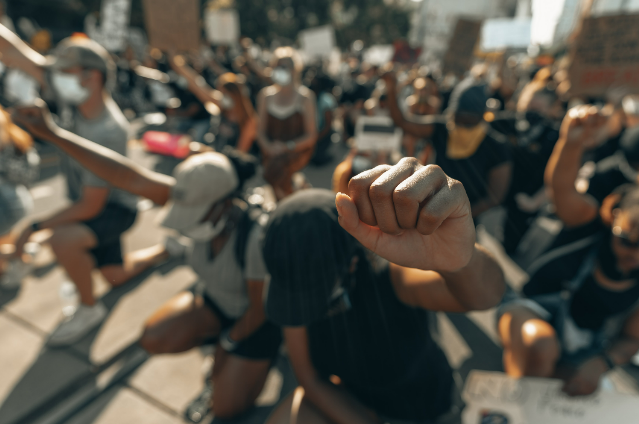
These factors help to determine the form and structure of these societies. Man is influenced by non-human biological factors. He modifies them to serve his purposes creating interaction between biological and cultural factors. The biological factors influence the numbers, the composition, the birth rate, the death rate, the fertility rate and the hereditary quality of the successive generations. Every life is a different distribution of qualities and potentialities.
The composition of population also influences social change. The biological environment which is inherently unstable responds to the demands of man rather than submits to man's uses. It is more sensitive.
Cultural Factors of Social Change:
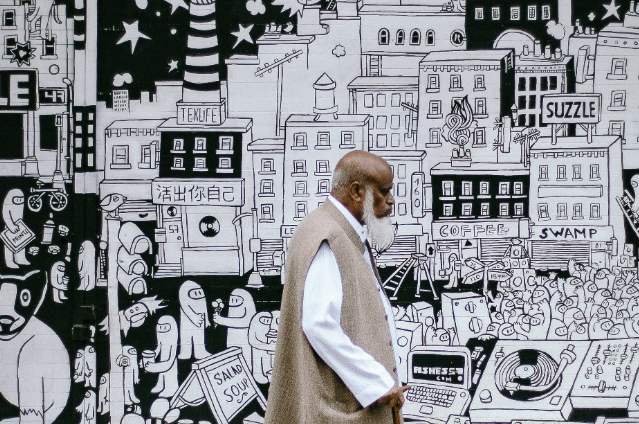
They are an important factor in the process of social change. It consists of our values, and beliefs, ideas and ideologies, morals and manners. These values are also subject to change. They change with change in social order. They change with time and try imitating social order. There is an intimate connection between our beliefs and institutions, our valuations and social relationships. Cultural change involves social change as there are changes of traditions occuring too.
'What people think, in short, determines in every measure....what they do and what they want.' - Robert Bierstedt.
Culture gives speed and direction to social change. Our civilization has been rgely impacted with the dawn of modernisation. It is not something static. Further, changeability is inherent in culture. It may not respond to social changes but also gives cues and directions to social behaviour. New ideologies also cause tremendous change. It creates itself or develops by itself.
Our culture also defines the manner in which the technological inventions will be put into force. The complex combinations of technology and social values produce conditions that encourage further technological change.
Max Weber in his book, 'The Protestant Ethics and Spirit and Capitalism', has attempted to explain the relation between economic and religious forces in a society.
Culture factors play a positive as well as a negative role in bringing about technological change. Technology is the creation of man. Men are always moved by ideas, thoughts, values, beliefs, morals and philosophies etc.
Technological Factors:

Technology is a product of civilization. When the scientific knowledge is applied to the problems of life, it becomes technology. Technology changes society by changing our environment to which we in turn adapt. This change is usually manifested in the material environment which modifies in turn the social customs. The rise of technology has accelerated the mode of production. The Industrial Revolution is a classic example of that. Writers like Yogendra Singh have correlated the growth of modernisation is coupled with the process of industrialisation. The family, kinship patterns, education and economy are all affected largely due to the advent of technology. Urbanisation is a product of industrialisation. It denotes a diffusion of the influence of urban centres to a rural hinterland. Urbanisation becomes the process of becoming urban or morning to cities. It has become a world phenomenon today. Imdustrialised states have varying modes of employment. The unregulated growth of cities have resulted into congestion and rural depopulation. Modernisation is a process which refers to the advancement of values on rational and humanitarian grounds. Changes are marked in the fooding habits, dress habits, speaking styles and choices etc. Changes are important for the specialisation of society as a whole. The development of means of transport has largely expanded. Communication has developed between nations and internationally. The intermixing of people has led to the sharing of culture and relaxation of prejudices against each other.
The rise of middle class and other classes is a product of these processes. The white-collar jobs has become a hobby for all. Machines replacing human labour is also contributing to the growth of unemployment. The modes of conventional warfare have changed to ad advanced systems of warfare. Greater the technological advancement, the greater the world is becoming a dangerous place to live in.
Industrialisation, urbanisation, development, growth of democracy have profound impact on the values of life. New values and orders have come to characterise the modern society. Manipulation of each other has again become a pastime for people now. The mechanisation of people is leading to their alienation.
Changes in Social Institution:

Technology has profoundly impacted our lives. The family organisation has changed. Joint families are disintegrating to give way to nuclear families. Marriage which was earlier considered to be a sacred bond has lost its sanctity and is converting purely into a civil contract. The dawn of modernisation has dispelled off the superstitions present in almost every religion. The ideas of secularisation have advocated for the separation of political matters from religious matters. The functions of a state have got enlarged. It has to function for the larger welfare of the public.
It works to secure the 'greatest happiness of the greatest number' as enunciated by Jeremy Bentham.
The Hypothesis of Cultural Lag:
William F. Ogburn, in his book 'Social Change' has formulated the hypothesis of 'cultural lag'.
This theory states that changes are quick to take place in the material culture. These in turn stimulate changes in the non-material culture. But the non-material culture may be slow to respond giving rise to a gap between the material and the non-material culture. This lag is called the cultural lag.
Ogburn, 'the strain that exists between two correlated parts of culture that change or unequal parts of speed may be interpreted as a lag in the part that is changing the slower rate for the one lag behind the other.'
The chief problem of adjustment in modern life is of synergizing and synchronising the non-material culture with the material culture to bridge the cultural gap.
Social Legislation and Social Change
'Laws are a form of social rule emanating from political agencies.' - Anonymous
Laws becomes legislations when they are made and put into force by law-making body. Legislation plays an important role in bringing about social change.
Law is there to both regulate the society and extend social cohesion. The dynamic role of law asserts that law should work regularly to establish a better society to live in. Laws help in bringing legal norms with the existing social norms. They are also used to improve social norms on the basis of new legal norms. Whenever the social norms are ahead of legal codes, it becomes necessary to bring the legal code into conformity with the present social values.
Unaided social legislation can hardly bring about a social change. Social change is effective only when a particular norm is given a legal sanction.
Some examples of legal norms that affected social norms:
a) The Hindu Marriage Act of 1955 enforced monogamy and permitting judicial separation and divorce. It also relaxed the caste restrictions. It enabled a secular outlook in society. It proved for the setting up of a Uniform Civil Code in the country.
b) The Hindu Succession Act of 1956 asserted for the first time absolute rights over the property possessed by a Hindu woman.
c) The Hindu Adoption and Maintenance Act of 1956 has been a step towards the upliftment of the status of women. It makes the consent of the women necessary for adopting a child.
d) The Untouchability Offences Act of 1955 made untouchability a punishable offence under law.
We must note that compliance for a particular law from the society should not be forced. Forced compliance can sabotage the relations between the State and the people. Legislations can be unintended too. Legislations cannot be made in the social field directly and they cannot fix the course of social changes in a particular fashion.
Education and Social Change

Education can also be understood as a factor of social change. It's a way of transmitting a way of life to the students. Education is a process which brings about changes in the behaviour of society. A highly educated person becomes the central resource of today's society. Modern education has changed our attitude and look. It broadens our views towards things. It can initiate social change by bringing about a change in the outlook and attitudes of man. It can bring about a change in the pattern of social relationship. To change man is to change society only. Education has contributed to a radical improvement in the status of women. Education reflects society and educational change follows social change. Education is an important means of attaining social and economic rewards of society. Planned education system contributes to greater social integration. It enhances the process of social mobility. Education is regarded as the gateway to an improved social position. Education is playing a determining role in defining social status. It increases political awareness among role. The State is for man, not man for the State. Educational organisatons have become innovators. They are gathering and storing new knowledge and are promoting change through various activities. The educational system dedicates itself to the task of desirable changes. The literacy level has enhanced and has brought about a dramatic change in society.
Conclusion
Social change requires mass mobilisation in form of social movements. They champion the cause of social problems. Social movements promise to bring about a change. It is an organized group effort to generate socio-cultural change. Society is not a static element. It is a complex system of movements and counter movements pulling in different directions. The relationship between a social movement a social change is highly intricate.
Social change is thus a universalized and generalized phenomenon in almost all types of societies. It cannot be escaped. It's a reality to be confronted and embraced by all of us. The social change may not always happen for the good but sigh of a better change shall never die. We must not forget,
'Whatever happens, happens for the good.' - Anonymous.



